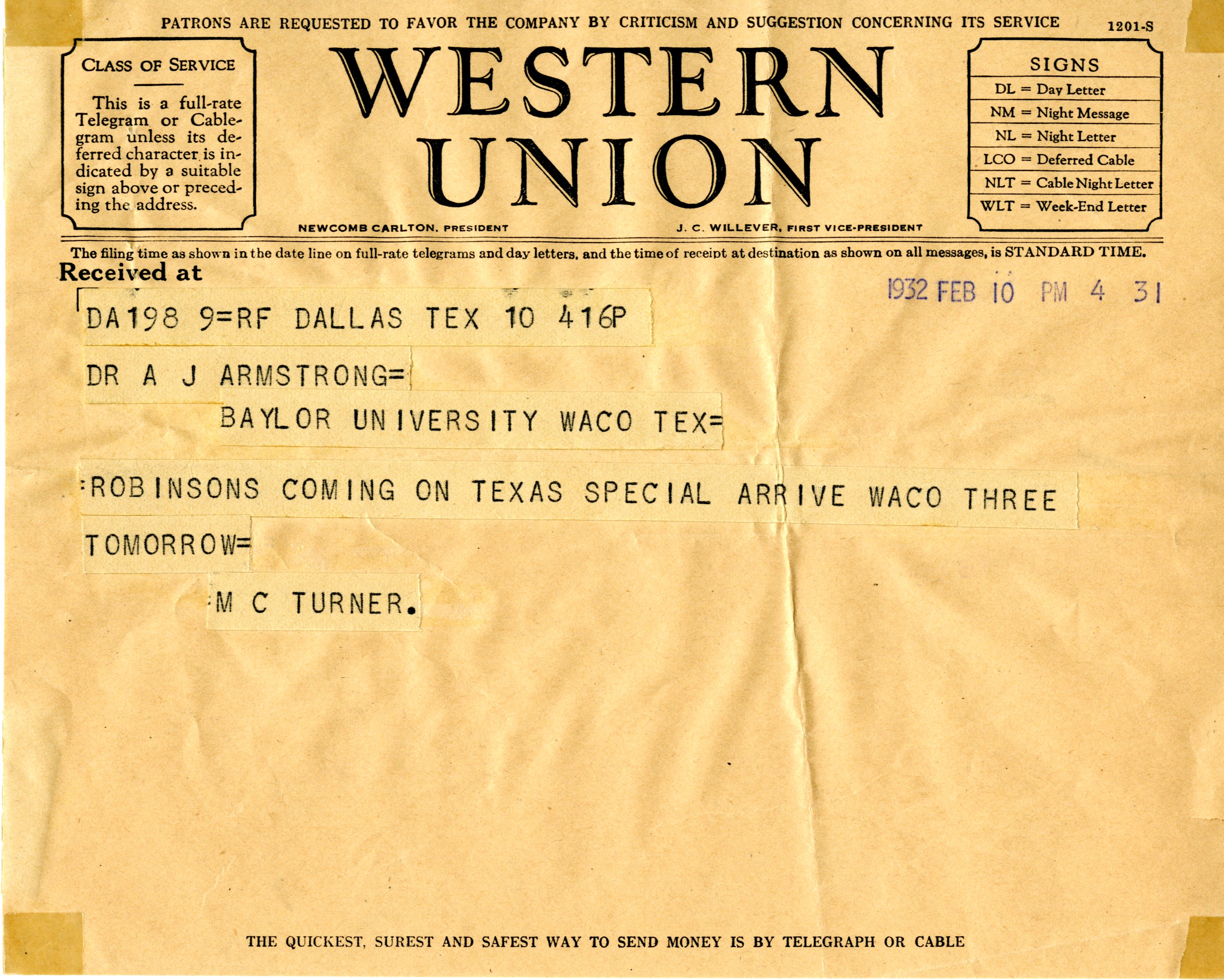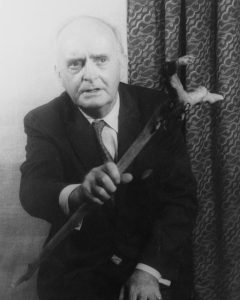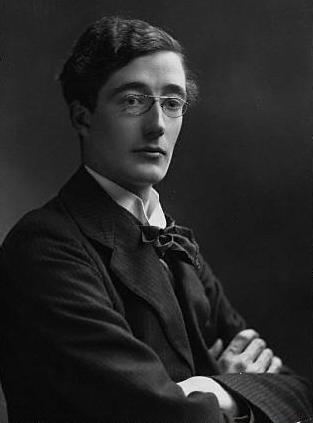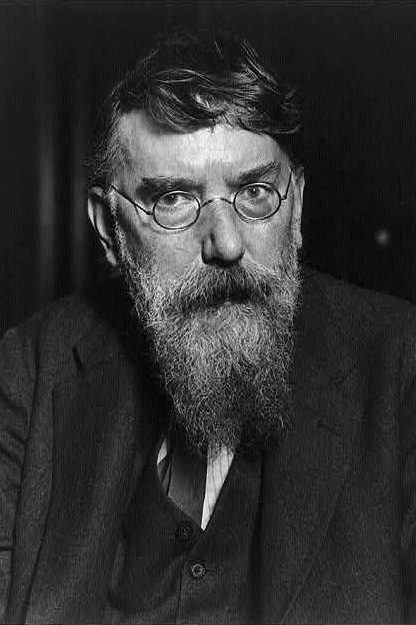Borrowing its title from a collection of essays by C. S. Lewis, this series, “They Asked For A Paper,” highlights interesting items from the Armstrong Browning Library’s collection and suggests topics for further research.
By Melinda Creech
Manuscripts Specialist, Armstrong Browning Library
 March 15-17, 2017, Baylor will be hosting the 23rd Annual Beall Poetry Festival, featuring Catriona O’Reilly, Margaret Mills Harper, Adrian Rice, Micheal O’Siadhail, and a poetry panel, moderated by Chloe Honum. The festival this year has a decidedly Irish tenor, featuring three Irish poets and an American Yeats scholar, who teaches at the University of Limerick, as the festival’s guests. The festival will also end on St. Patrick’s Day.
March 15-17, 2017, Baylor will be hosting the 23rd Annual Beall Poetry Festival, featuring Catriona O’Reilly, Margaret Mills Harper, Adrian Rice, Micheal O’Siadhail, and a poetry panel, moderated by Chloe Honum. The festival this year has a decidedly Irish tenor, featuring three Irish poets and an American Yeats scholar, who teaches at the University of Limerick, as the festival’s guests. The festival will also end on St. Patrick’s Day.
 However, visits by poets to the Baylor campus were not exclusive to the twenty-first century. Dr. A. J. Armstrong, head of the English Department at Baylor for 40 years, from 1912-1952, made a conscious effort to invite famous literary men and women to speak at Baylor, including many poets, such as Robert Frost, Vachel Lindsay, Amy Lowell, Carl Sandburg, and William Butler Yeats.
However, visits by poets to the Baylor campus were not exclusive to the twenty-first century. Dr. A. J. Armstrong, head of the English Department at Baylor for 40 years, from 1912-1952, made a conscious effort to invite famous literary men and women to speak at Baylor, including many poets, such as Robert Frost, Vachel Lindsay, Amy Lowell, Carl Sandburg, and William Butler Yeats.
The Beall Poetry Festival has invited Irish poets in the past, most notably Seamus Heaney, who spoke here in 2013, shortly before his death. Dr. Armstrong, early in the twentieth century also invited Irish poets to speak at Baylor University.
Padraic Colum (1881-1972), Irish poet, novelist, dramatist, biographer, playwright, children’s author and collector of folklore, was one of the leading figures of the Irish Literary Revival. He visited Baylor University on January 23, 1929, giving a lecture on the musical, oral quality of poetry and leaving a manuscript copy of lines from his poem, “An Old Woman of the Roads.”
Och! but I’m weary of mist and dark,
And roads where there’s never a house nor bush,
And tired I am of bog and road,
And the crying wind and the lonesome hush!
Esmé Stuart Lennox Robinson (1886-1958), an Irish dramatist, poet and theatre producer and director who was involved with the Abbey Theatre, visited Baylor February 11, 1932. The Abbey Irish Players performed at Baylor on February 20, 1932. These telegrams from the Robinsons’s agent accept the engagement and inform of their arrival:

Telegram from M. C. Turner to Dr. A. J. Armstrong, accepting an invitation to speak at Baylor University.

Telegram from M. C. Turner to Dr. A. J. Armstrong, informing him of the Robinsons’s arrival the following day via the Texas Special train.
George William Russell (AE) (1867-1935), an Irish writer, editor, critic, poet, artistic painter and Irish nationalist, spoke at Baylor on December 11, 1930. A manuscript copy of his poem, “Outcast,” is now in the collection at the Armstrong Browning Library.
Sometimes when alone
at the dark close of day
Men meet an outlawed majesty
and hurry away.They come to the lighted house,
They talk to their dear,
They crucify the mystery
with words of good cheerWhen love and life are over
And light at an end
on the outcast majesty
They lean as a friend.

William Butler Yeats, holding a volume of William Blake’s Poetical Sketches. Yeats edited an edition of Blake’s collected works in 1893.
William Butler Yeats (1865-1939), one of the greatest poets in the twentieth century, was the first Irishman to be awarded the Nobel Prize in Literature in 1923.
Yeats lectured and read his poetry at Baylor on April 16, 1920. The Lariat, Baylor’s student newspaper, reports that he recounted several literary men who had influenced his life, remarking that “A number of those friends were slaves to intoxicants and their best poems … were written while they were somewhat in the state of sadness or dissipation. Yeats stated that he did not believe men had to lead a dissipated life to be great, but that it had somewhat of an influence over him.”
This is a transcription of a letter from George Yeats, William Butler Yeats’s wife, to Mrs. A. J. Armstrong. In the letter George Yeats describes how much she and Willy enjoyed their visit to Baylor. The letter was probably transcribed by Lois Smith Douglas in preparation for her biography of Dr. A. J. Armstrong, Through Heaven’s Back Door. The whereabouts of the original letter is unknown.
The Armstrong Browning Library also has letters, archives, manuscripts, and books from many Irish poets from the nineteenth century, including George Darley, Aubrey de Vere, William Allingham, Lady Jane Wilde, Katharine Tynan, Richard D’Alton Williams, and Lizzie Mary Little.






